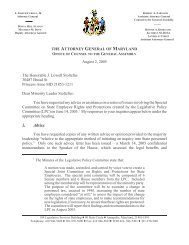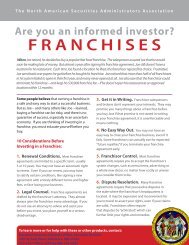HEAU Appeals and Grievances Cases - Maryland Attorney General
HEAU Appeals and Grievances Cases - Maryland Attorney General
HEAU Appeals and Grievances Cases - Maryland Attorney General
Create successful ePaper yourself
Turn your PDF publications into a flip-book with our unique Google optimized e-Paper software.
III.<br />
Carrier Internal Grievance Process<br />
All health insurance carriers regulated by the State of Maryl<strong>and</strong> are required to establish a<br />
grievance process that complies with the provisions of the <strong>Appeals</strong> <strong>and</strong> <strong>Grievances</strong> Law. Health<br />
maintenance organizations, nonprofit health service plans, <strong>and</strong> dental plans are also covered by the<br />
5<br />
requirements of the law. The <strong>Appeals</strong> <strong>and</strong> <strong>Grievances</strong> Law establishes guidelines that carriers must<br />
follow in notifying patients of medical necessity <strong>and</strong> contractual denials, establishing grievance<br />
processes, <strong>and</strong> notifying members of grievance decisions.<br />
The law also subjects carrier decisions to an external review by MIA. In cases of medical<br />
necessity denials, MIA can refer the case to medical experts at an Independent Review Organization<br />
(IRO) for evaluation <strong>and</strong> to provide MIA with an opinion as to the medical necessity of the care.<br />
MIA has the option of accepting or rejecting the opinion when making a final determination.<br />
In addition, the <strong>Appeals</strong> <strong>and</strong> <strong>Grievances</strong> Law requires carriers to submit quarterly reports to<br />
MIA that describe the number <strong>and</strong> outcomes of internal grievances h<strong>and</strong>led by the carriers. MIA then<br />
forwards the reports to <strong>HEAU</strong> for inclusion in this Report. While the quarterly report data submitted<br />
by carriers provides some basic insight into the carriers’ internal grievance processes, its usefulness<br />
is limited by several factors, including:<br />
• The carriers do not report data about each individual grievance. The carriers divide their data<br />
into medical service categories <strong>and</strong> report on the limited data within each category. As the<br />
categories are not st<strong>and</strong>ardized, reporting <strong>and</strong> categorizing may vary significantly from one<br />
carrier to another, making it difficult to compare one carrier’s data to that of another.<br />
• The diagnosis <strong>and</strong> procedure information reported is incomplete. Carriers are required to report<br />
diagnostic or treatment codes for a limited number of complaints. While the limited data<br />
provides basic evaluative information, complete reporting would provide a more valuable tool<br />
in analyzing grievance data.<br />
• Carriers are not required to identify the grievances that involved the MIA or <strong>HEAU</strong>. Since this<br />
information is not present, it is impossible to check the cases reported by carriers against the data<br />
recorded by MIA or the <strong>HEAU</strong> to verify the consistency of data reporting.<br />
• Carriers are not required to report membership or enrollee numbers, so an analysis of the number<br />
of adverse decisions compared to enrollee number cannot be performed.<br />
As of January 1, 2002 the data submitted by carriers was exp<strong>and</strong>ed to include the number of<br />
adverse decisions issued <strong>and</strong> to identify the type of service involved in each adverse decision. The<br />
5<br />
Health plans offered by Medicare, Medicaid, the Federal Employee Health Benefit Plan<br />
<strong>and</strong> the federally regulated self-funded plans are not subject to the appeals <strong>and</strong> grievances<br />
requirements.<br />
3


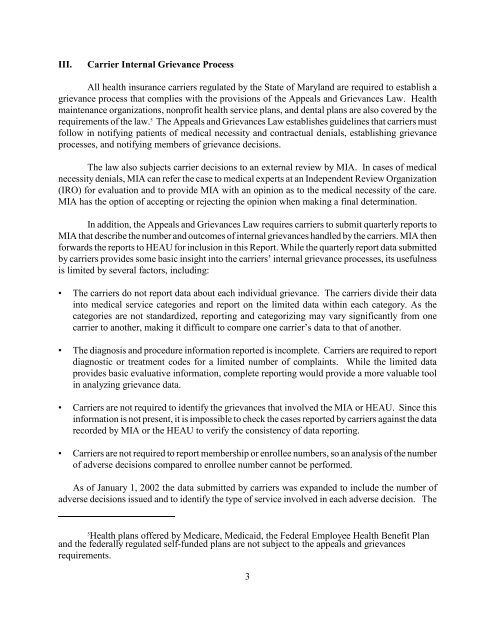
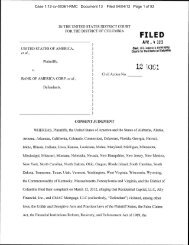
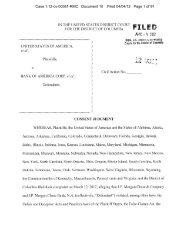
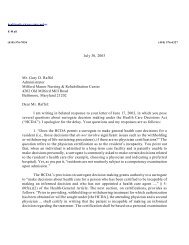
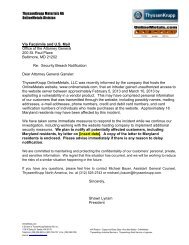
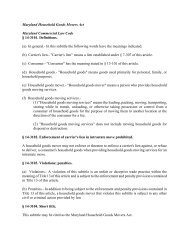
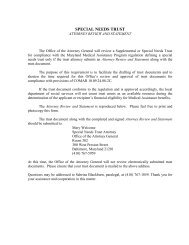
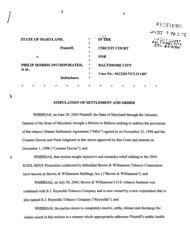
![[name of organization] THIRD PARTY CONTRACTS From time to ...](https://img.yumpu.com/24863110/1/190x245/name-of-organization-third-party-contracts-from-time-to-.jpg?quality=85)



